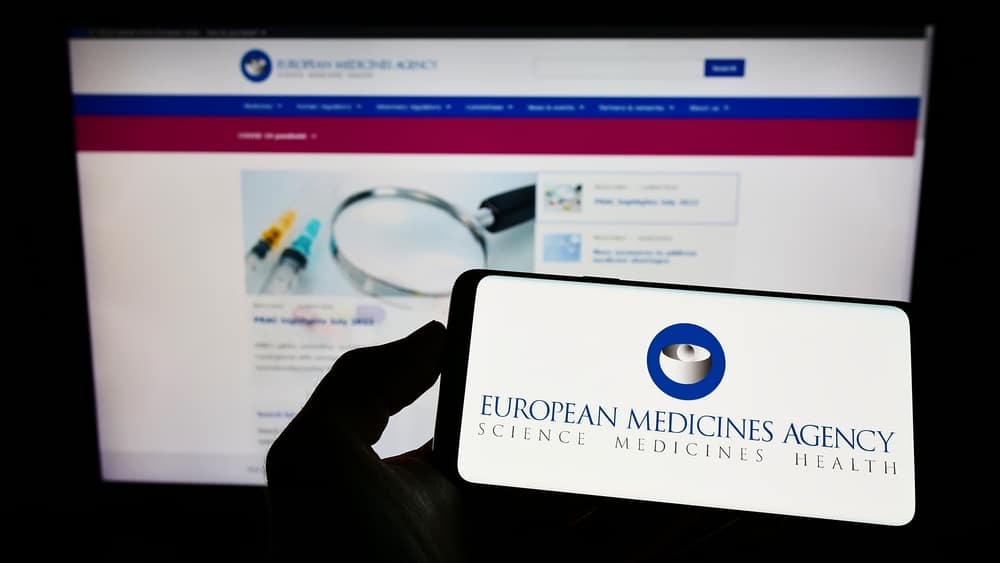Newsletter Signup - Under Article / In Page
"*" indicates required fields
Aeglea BioTherapeutics, Inc. says its marketing authorization application (MAA) for pegzilarginase for the treatment of arginase 1 deficiency (ARG1-D) has been validated by the European Medicines Agency (EMA).
The MAA was submitted by Immedica Pharma AB, Aeglea’s commercialization partner in Europe and the Middle East.
Pegzilarginase is a novel, recombinant human arginase 1 enzyme that in clinical trials has been shown to normalize the elevated levels of the amino acid arginine in patients with ARG1-D, a rare, progressive disease characterized by high levels of arginine. People living with ARG1-D experience severe spasticity-related mobility limitations, seizures, developmental delay, intellectual disability, and early mortality.
“For progressive diseases like ARG1-D, every day that passes without an approved therapy increases the disease burden and worsens the outcome for patients and their families. If approved, we believe pegzilarginase has the potential to benefit these families,” said Anthony G. Quinn, president and chief executive officer of Aeglea.
“We are thrilled with the progress being made with the validation of the MAA and look forward to continuing to work with and support our partner Immedica throughout the EMA review process.”
Immedica’s MAA submission included data from multiple clinical studies in ARG1-D, including the double-blind, placebo-controlled PEACE phase 3 study and its ongoing long-term extension, a phase 1/2 clinical trial and an open-label extension study. Aeglea said results from these trials demonstrated pegzilarginase is able to rapidly and sustainably lower arginine levels and showed improvements in measures of mobility.
In the PEACE study, most treatment-emergent adverse events were mild or moderate in severity and there were no discontinuations due to treatment-emergent adverse events. The EMA has granted pegzilarginase Orphan Drug Designation.
Pegzilarginase in arginase 1 deficiency
Pegzilarginase is a novel recombinant human enzyme engineered to degrade the amino acid arginine and has been shown to rapidly and sustainably lower levels of the amino acid arginine in plasma.
Aeglea is developing pegzilarginase for the treatment of people with arginase 1 deficiency (ARG1-D), a rare debilitating and progressive disease characterized by the accumulation of arginine. ARG1-D presents in early childhood and patients experience spasticity, seizures, developmental delay, intellectual disability and early mortality.
The PEACE phase 3 clinical trial met its primary endpoint with a 76.7% reduction in mean plasma arginine compared to placebo. Additionally, 90.5% of pegzilarginase treated patients achieved normal plasma arginine levels. The arginine lowering was accompanied by a positive trend in Gross Motor Function Measure Part E, a measure of patient mobility.
Aeglea’s phase 1/2 and phase 2 open-label extension (OLE) data for pegzilarginase in patients with ARG1-D demonstrated clinical improvements and sustained lowering of plasma arginine. Pegzilarginase has received multiple regulatory designations, including Rare Pediatric Disease, Breakthrough Therapy, Fast Track and Orphan Drug designations from the U.S. Food and Drug Administration as well as Orphan Drug Designation from the European Medicines Agency.
About Aeglea BioTherapeutics
Aeglea BioTherapeutics is a clinical-stage biotechnology company. It also has an ongoing phase 1/2 clinical trial of AGLE-177 for the treatment of homocystinuria. AGLE-177 has been granted rare pediatric disease designation. Aeglea has a discovery platform focused on engineering small changes in human enzymes.






